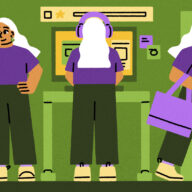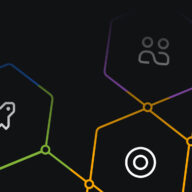How private-sector tech companies are stepping up to the COVID-19 fight
Defeating this virus is going to take a coordinated response from the entire world, and private sector companies are leading the way with these creative innovations.
In a drastic worldwide attempt to curb the spread of COVID-19, one third of the global population is now experiencing some form of lockdown.
For the millions of Americans who have filed for unemployment over the last few weeks, there is nothing to do but wait. But for those on the frontline, time has never felt so limited. As hospitals around the world face buckling under the pressure of wave after wave of new patients, increasing the capacity of our healthcare systems has become our priority.
Technology feels more essential than ever. We’re using it to deliver critical medical supplies around the world, to enable teams to keep their jobs by working from home, and to allow people to check in with friends and loved ones while socially distancing.
Nobody truly knows when ‘business as normal’ will resume. A report by IPC released on March 30, stated that “just more than 40 percent of respondents expect business to return to normal by June 2020, 75 percent expect normalcy by August 2020, and 90 percent see it returning by October 2020”. But at this point, the end still feels far away.
Technology companies coming to the aid of government and healthcare
The technology and connectivity we have available to us today makes this health crisis unlike any other. We can instantly reach broad swaths of the population to deliver vital updates, support, and guidance, which is vital to relieve some of the burden on our healthcare systems.
Private-sector companies across all sectors are using their resources to assist with the COVID-19 response. Here are some of the most inspiring projects:
Postman
You may have heard of the COVID Tracking Project in recent news coverage. This is born from an API collection released by San Francisco-based Postman, a platform for API development. The COVID tracking projects collects information from across 50 U.S. states to provide comprehensive testing data, as well as Twitter and YouTube API feeds and RSS feeds for the World Health Organization (WHO). The platform is encouraging any organization that has a useful pandemic-related project that they would like to have deployed as an API to contact them.
CenturyLink
At a time when access to the latest information is mission-critical, CenturyLink, a company that provides communications, network services, security, cloud solutions, is providing high-speed internet to temporary hospitals around the U.S. to assist healthcare workers on the front lines.
HP
With a nationwide shortage of medical supplies threatening the health of our front-line responders, HP is providing 3D printing resources for COVID-19 containment applications across the world. They have released several 3D printable designs available for download on their website, including face shields, a face mask, wrist covers, hands-free door openers, and a mask adjuster. The company is also working on the development of nasopharyngeal swabs, FFP3 masks, and ventilator components.
Partnerships across the private-sector are pioneering new opportunities
Ventec Systems and General Motors are partnering to mass-produce critical care ventilators scheduled to ship this month. This week, General Motors also began manufacturing FDA-cleared Level 1 surgical masks.
The Gates Foundation has joined up with Wellcome and Mastercard to launch the COVID-19 Therapeutics Accelerator, a $125 million fund to address the coronavirus pandemic.
The project is designed to “identify potential treatments for COVID-19, accelerate their development, and prepare for the manufacture of millions of doses for use worldwide”. The Gates Foundation is also providing funding to support diagnostic tool development, vaccine development, and the protection of vulnerable communities affected by COVID-19.
Open-source and hackathons
A number of companies, including AWS, Facebook, Giphy, Microsoft, Pinterest, Salesforce, Slack, TikTok, Twitter, and WeChat, have also shared resources to support participants of the COVID-19 Global Hackathon.
There are now thousands of open-source collaborative projects designed to track, understand, and respond to COVID-19. As of March 30, more than 6,000 contributors have provided support to more than 3,000 COVID-19 response projects worldwide. Most of these projects are hosted on GitHub, a Git repository hosting service.
Mobilizing tech volunteers
There are also a number of organizations across the U.S. that have been set up to coordinate with the government to assist with the COVID-19 response. They are currently accepting applications from individuals and small teams with technical experience who can assist with the crisis.
The New York Technology SWAT Teams
As it stands, New York remains the epicenter of the COVID-19 outbreak in the U.S. Since the first case was reported on March 1, there have been more than 140,081 reported cases and 5,563 deaths as of April 8.
To support the state’s response, New York officials are creating Technology SWAT Teams. As part of the initiative, they are looking for any technology companies, universities, nonprofits, research labs, and other organizations, regardless of industry, that can offer their technology expertise.
Volunteers will be required to collaborate virtually with teams in New York State to produce impactful solutions that can assist the government’s response.
To get involved, you can complete an interest form on their website.
The U.S. Digital Response (USDR)
With cases in the rest of the country expected to rise rapidly over the coming weeks, volunteer-run non-profit U.S. Digital Response (USDR) was set up to connect private-sector data analysts with local governments across the entirety of the U.S.
“We are connecting volunteer help with governments who reach out and need help,” says USDR CEO, Raylene Yung.
“We definitely operate very much like a fast-growth tech company. There is a huge government influence. Half the team has experience working in government or government technology. But the other half comes from a very traditional software engineering background.”
Since starting up less than a month ago, USDR has already been involved with multiple projects, including:
- National PPE Coalition – a project designed to coordinate supply and demand, logistics, funding, and data tracking to ensure that personal protective equipment (PPE) is delivered where it’s most needed.
- Covid Act Now – a projection model that outlines how much action each state is currently taking to deal with the virus, and predicts when hospitals are likely to become overloaded.
- Ask a Scientist – a collaboration with the Federation of American Scientists that answers the public’s questions about COVID-19. The Ask a Scientist widget is also available on GitHub so it can be added to websites.
The organization focuses on short-term projects that volunteers can help out with to get them up and running, before putting it out there and moving on to the next project. Volunteers have been involved in writing best practices, and open-sourcing individual components, and building tools that can then be easily replicated by others once they are finished.
“Even on a good day, government is not usually fully resourced to carry out all of the data and tech priorities that it could, or should, and we really see that brought to light in a crisis like this,” says Cori Zarek, the Director of the Digital Service Collaborative at Georgetown University’s Beeck Center for Social Impact and Innovation.
“At some point when we are all able to all move along and put some of the COVID-19 rapid response behind us, I hope this will have opened up the opportunity for more resourcing for data and tech talent in government overall, and potentially considering where data and tech surge capacity could be provided when there is some type of emergency, even if it’s not a global pandemic.”
USDR is currently open for volunteer applications.
When tackling a global epidemic, we’re all in this together
The response by companies around the world to the COVID-19 crisis is unlike anything we have witnessed before. Even though business as usual has screeched to a grinding halt, creative innovators around the globe are using all their resources to pitch in so that we can all weather this crisis a bit better.
In such dark times, it is inspiring to see how many organizations are coming together to help stop the spread of the virus and save as many lives as possible. Now more than ever, it’s vital that we all pull together.
Atlassian has also partnered with Facebook and the Australian government to release a coronavirus information app and WhatsApp chat feature. It is now available on iOS and Android for use in Australia.











































